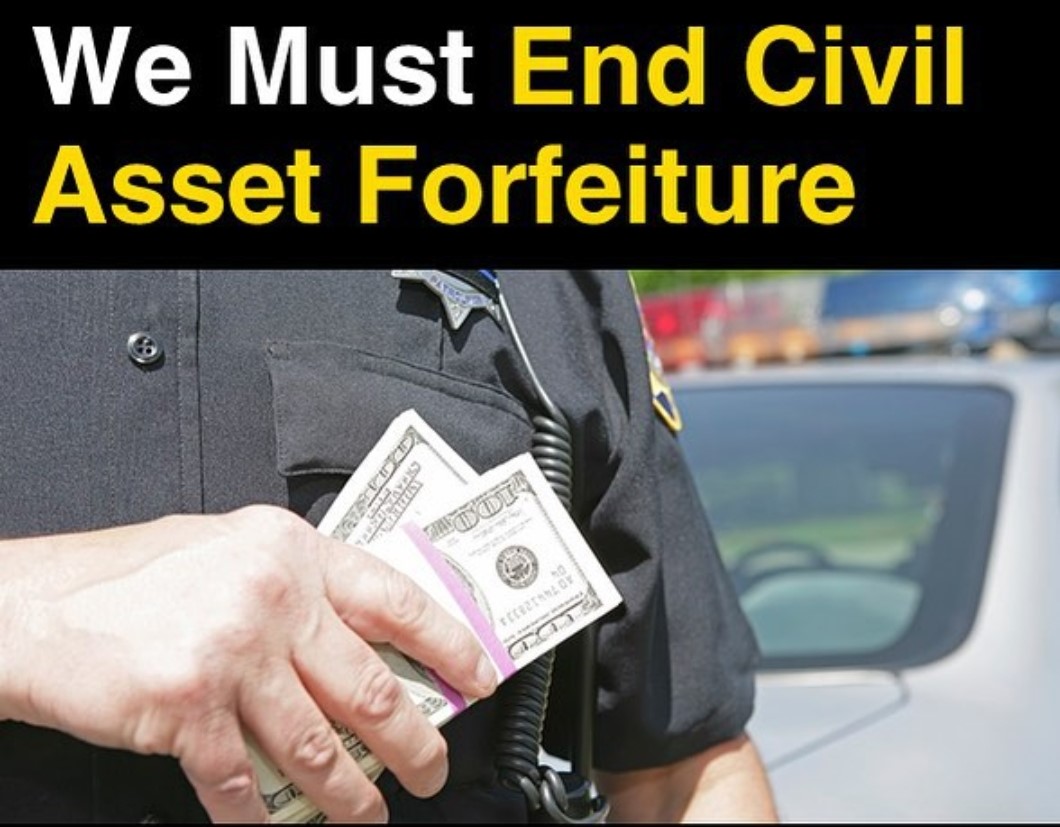Countering Civil Forfeiture Myths with Facts
Every year, federal, state, and local government agents take—and permanently keep—billions of dollars of Americans’ property through civil forfeiture. The practice of civil forfeiture creates significant benefits for interest groups within government, such as policy makers, police officers, and prosecutors. Forfeiture reduces the taxes that policy makers would otherwise have to levy and captures funds for public safety budgets that law enforcement officials would otherwise have to pursue through legislative appropriations.
The danger that civil forfeiture poses to property rights and due process raises large questions about its legitimacy and fairness. Civil forfeiture allows police officers to seize property, and that seizure only requires probable cause to believe that the property is related to crime. Prosecutors then can shift the ownership of the property to the government through litigation in civil court, even if the owner was never convicted or even faced criminal charges.
Civil forfeiture has also generated a mythology that functions as a justification for its use. It consists of a set of myths about civil forfeiture that are irreconcilable with basic facts. In a new report for the Competitive Enterprise Institute, “Five Myths of Civil Forfeiture,” I describe the myths and the realities of the civil forfeiture system:
A typical cash seizure does not usually consist of hundreds of thousands of dollars—more like several hundred dollars to a little over $1,000.
When property is seized, the owner typically does not have access to the courts to recover it. It’s not worth it to pay thousands of dollars to a lawyer just to get back hundreds.
Seizure and forfeiture are not governed by due process of law. Rather, there is a slim likelihood of recovery, a low standard of proof that empowers law enforcement over civilians, and powerful government revenue incentives at work that stack the deck.
Our justice system does not require high standards of proof of wrongdoing for seizures and forfeitures to occur. In fact, they regularly occur without any such evidence.
The injustices caused by civil forfeiture have not been fixed, as some reformers hoped, when states have passed laws to require a conviction in criminal court as a prerequisite to forfeiture litigation in civil court. Why? Because there is often no connection between the crime and the property owner.
In short, the public has been victimized—not only by civil forfeiture, but also by false narratives about civil forfeiture that have been spread by its beneficiaries. These false narratives underlie an unjust status quo that leaves property owners unprotected and defenseless in the face of government authority. As I explain in the report, these narratives are not and cannot be supported by the available data in the real world. The report aims to challenge those narratives and to set the record straight.
Additional Reading:
Record $1 billion worth of bitcoin linked to the Silk Road seized by U.S. government | Bad Rules Make Bad Cops: Bart Wilson on The Economics of Civil Forfeiture | How A Quiet Police Lobbying Campaign Killed Civil Asset Forfeiture Reform In Missouri | It Was a Good Week to Fight Civil Asset Forfeiture | The feds are helping local police make money by taking your stuff again | Albany district attorney, sheriff under federal review for use of funds | Former Motel Caswell owner testifies in nation’s capital on pitfalls of civil forfeiture law | Half-A-Cheer For Supremes Civil Asset Forfeiture Ruling | Law enforcement took more stuff from people than burglars did last year | Christie on Civil Asset Forfeiture | An Overview of Recent State-Level Forfeiture Reforms | The Complex Link: Asset Forfeiture and Drug Laws | The Dangers of Default Judgments in Forfeiture Proceedings | Feds auction $13.5M worth of Silk Road bitcoins | Institute for Justice’s Darpana Sheth Discusses Civil Asset Forfeiture | Civil Forfeiture Laws Raise Questions on Policing for Profit | Federal Civil Asset Forfeiture | Forfeiture & Organized Crime: Legal Strategies | Op-Ed: Weak reforms allow Arkansas police to patrol for cash | DEA Forfeiture Appeals: Challenging Unjust Drug Asset Seizures | The Surprising Truth About ‘Dirty Money’ | How Policing for Profit Threatens Your Rights (TEDx) | Close the Federal Asset Forfeiture Loophole | Police seize property without charges and pocket the proceeds. There’s a bipartisan move to crack down.



![0x0[1]](https://www.rucci.law/wp-content/uploads/2023/12/0x01-1-scaled-1.jpg)

![0x0[1]](https://www.rucci.law/wp-content/uploads/2023/12/0x01-scaled-1.jpg)




